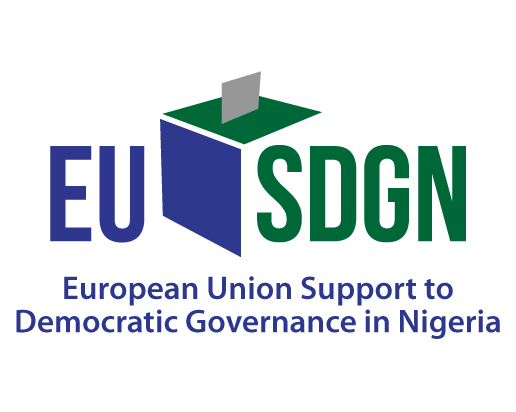As the world marks World Braille Day 2025, the European Union Support to Democratic Governance in Nigeria Programme (EU-SDGN) has reiterated its strong commitment to promoting inclusivity and accessibility for persons with disabilities (PWDs) in Nigeria. Under the theme “Celebrating Accessibility and Inclusion for the Visually Impaired,” the EU-SDGN emphasized the importance of breaking down barriers and ensuring that every individual, regardless of physical abilities, has equal access to democratic processes and public life.
World Braille Day, observed annually on January 4th, serves as a reminder of the transformative power of Braille for the visually impaired. It highlights not only the significance of this tactile writing system in providing access to written content but also the broader need for accessible tools, platforms, and environments for individuals with disabilities. The EU-SDGN’s statement for this year’s observance reinforces the organization’s continued efforts to ensure that no one is excluded from participating fully in society, particularly in democratic processes.
“In Nigeria, the EU-SDGN has been actively working to address the challenges faced by persons with disabilities, especially in ensuring their full participation in democratic processes,” the organization’s statement reads. It goes on to highlight the range of initiatives the EU-SDGN has supported, all aimed at prioritizing accessibility, enhancing communication tools, and advocating for policies that protect the rights of PWDs. These efforts are part of a broader mission to create an inclusive environment where everyone, regardless of physical abilities, can engage meaningfully in public life.
One of the prominent voices in this advocacy is Jake Epelle, the Founder and Chief Executive Officer of TAF Africa. Epelle, whose organization is a member of the EU-SDGN Cohort, strongly emphasized the critical importance of accessibility in the electoral process. He stated, “Accessibility in electoral processes is not a privilege; it is a fundamental right.” Epelle’s words resonated with the EU-SDGN’s ongoing commitment to assessing and improving assistive devices, ensuring that no one is left behind in Nigeria’s democratic journey.
As the push for a more inclusive democracy grows, Epelle underscored that the journey towards inclusivity requires not only policy reforms but also consistent collaboration, innovation, and accountability. “Through programmes like the EU-SDGN, we are not only advocating for change but actively driving solutions that empower persons with disabilities to contribute meaningfully to governance and public life,” he added.
Epelle’s remarks highlight the importance of creating systems that are not just physically accessible but also socially inclusive, ensuring that people with disabilities are not marginalized in any aspect of governance. The inclusion of persons with disabilities in electoral processes, from voting to running for office, is a pivotal step toward a more democratic and equitable society.
In its statement, the EU-SDGN reaffirmed its dedication to building a democracy in Nigeria that is both inclusive and participatory, where the rights of all individuals are upheld, and where no one is excluded from the electoral process based on their physical abilities. This vision is at the heart of the EU-SDGN’s mission, which seeks to empower marginalized groups in Nigeria, especially those with disabilities, to engage fully in the democratic process.
This year’s World Braille Day, marked by the EU-SDGN’s announcement, serves as an urgent reminder that the fight for accessibility is not yet over. While advancements have been made in various sectors to accommodate people with disabilities, challenges remain. The push for accessible communication, tools, and platforms must continue, especially when it comes to critical areas like voting and civic participation. The EU-SDGN’s ongoing work in Nigeria aims to make these efforts a reality, ensuring that every person, regardless of their disability, has the opportunity to make their voice heard in shaping the future of their country.
As World Braille Day 2025 draws attention to the issues faced by the visually impaired, it also serves as a moment to reflect on the importance of creating a truly inclusive society. For Nigeria, this means rethinking accessibility in all facets of life—from education to employment, from public services to democratic participation.
The EU-SDGN’s dedication to these issues is a testament to the organization’s belief in the power of a truly inclusive democracy, where every Nigerian, regardless of their physical abilities, can have an equal say in their nation’s governance. Through continued partnerships, advocacy, and innovation, the EU-SDGN is paving the way for a more inclusive and accessible future, where persons with disabilities no longer face barriers to their participation in public life.
As we celebrate World Braille Day, the message is clear: accessibility and inclusion are not just ideals; they are fundamental rights. The EU-SDGN and its partners are leading the charge to ensure that these rights are realized for all Nigerians, regardless of ability.


